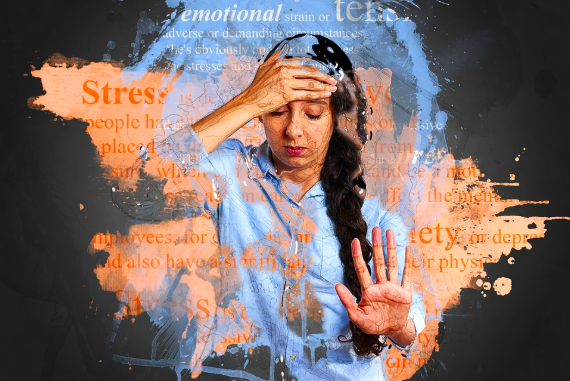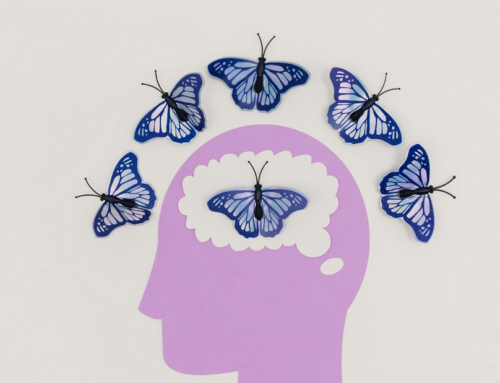It’s quite likely that at some point in your daily life, you’ve heard someone reference anxiety. Unfortunately, these references often don’t truly represent an actual anxiety disorder, and can be confusing, or even damaging to those experiencing signs and symptoms of an actual anxiety condition. We’re all familiar with casual phrases like, “I’m so OCD,” or “I nearly had a panic attack,” but we might be less familiar with what the conditions behind these expressions really represent.
True anxiety is, sadly, not just a simple quirk or personality type. It isn’t the usual nervousness you might get before a first date or other big life moment, either. After all, we all get nervous, perhaps even extremely nervous, before important events or during certain situations. A person with an anxiety disorder, however, experiences these feelings in much more consistent, intense, and life-altering ways.
While there are several types of anxiety disorders, each with their own symptoms, let’s take a look at some of the general signs of common anxiety disorders.
Obsessive Worries or Out of Control Thoughts
Someone with an anxiety disorder may experience obsessive worrying and racing thoughts. It can feel extremely difficult, even impossible, for a person with an anxiety disorder to let go of a worry. Many people with anxiety may have catastrophic thinking; they fear and even expect the worst possible outcome of an imagined scenario.
Worries can vary depending on the type of anxiety disorder. With panic disorder, a person may worry to an extreme degree about everyday tasks, like driving across a bridge, for fear that they might have a panic attack (an intense physical anxiety reaction in response to a sudden onset of adrenaline) during the event. Someone experiencing health anxiety may focus their concerns on the health of themselves or others, worrying obsessively about fatal diseases or problems. Someone with social anxiety might replay events from the day in their head, worrying about how they were perceived by others. A person may also experience more generalized worries or specific phobias. People often don’t have just one anxiety condition; anxiety disorders can coexist or symptoms can overlap within a single disorder.
Children with anxiety, in particular, may seem overly concerned with perfectionism, the approval of parents, teachers, and other children, as well as seem to lack confidence or self-esteem.(1) These children may need a great deal of reassurance from parents. They may also exhibit the same kind of catastrophic thinking that can be found in adults as they worry about their safety, the safety of family members or friends, and even major world events, like war or natural disasters.(1)
Children with learning differences, such as dyslexia, may be more likely to experience symptoms of anxiety, as they worry about the stresses of school, teachers, or other students.
Everyone worries from time to time. The difference between normal worrying and an anxiety disorder often lies in the intensity, rationality, and obsessive nature of the worrying. If you or your child’s worrying is irrational, beyond control, or constant, you might want to discuss these symptoms with a qualified health professional.
Various Physical Symptoms, From a Racing Heart to Muscle Tension
Anxiety regularly manifests itself into physical symptoms that can be as wide and varied as the various conditions themselves. Someone with an anxiety disorder might experience tension headaches, sleeping too much or too little, a racing heart or palpitations, hyperventilation, sweating, trembling, a feeling of being on-edge or overly tense, and even bouts of crying. It’s also quite common for children with anxiety to complain of stomach aches.(1)
If you or your child are experiencing physical symptoms, particularly if these symptoms involve pain or heart and breathing difficulties, check with a doctor to be sure that these symptoms are being caused by anxiety and not another condition. If these symptoms are caused by anxiety, you can discuss an appropriate treatment with the doctor, as well.
Avoidance Behavior
Children and adults with anxiety may have difficulty attending work, school, or other social situations.(1) They may try to find ways to avoid these obligations, as they just cause too great of an increase in their anxiety symptoms. Someone with a particular disorder, known as panic disorder with agoraphobia, will even find it difficult to leave their house, for fear of having a panic attack.
Compulsions
Someone with obsessive-compulsive disorder might respond to their worries and fears by acting out a typically unrelated compulsion, such as tapping or counting (among many other things).(2) These people may also engage in “magical thinking” — the belief that by doing their compulsion, whatever they fear will not happen. For instance, if someone is afraid of being in a car accident, they might tap the table next to them a specific number of times.
This seems random to someone outside of the anxiety disorder, and the truth is that the person experiencing the compulsion is usually aware of the lack of logic between the obsession and the compulsion. Nevertheless, the compulsions provide temporary relief until the next obsession takes hold.
Problems with Substance Abuse
Statistically, it isn’t uncommon for someone with an anxiety disorder to struggle with substance abuse. Often, people experiencing anxiety will use substances to help with their anxiety. This is a devastating way to handle an anxiety disorder. If you’re struggling with substance abuse, it’s important to reach out to your physician for guidance, support, and appropriate treatment both for the substance abuse problem and for the anxiety.
Getting Treatment for You or Your Child’s Anxiety
Anxiety is debilitating and finding the right treatment for you or your child is an important step toward living a happier life.
Anxiety treatments may involve specific therapies, medications, or a combination of various treatments. Speak with your doctor about you or your child’s symptoms, and they can usually refer you to a mental health professional who can make an appropriate determination.
If you think your child might be struggling with anxiety due to problems with a learning or neurobehavioral disorder, Neurobehavioral Associates can help. We can provide a comprehensive assessment, as well as offer our wealth of referrals and resources, including psychiatric referrals, if needed.
Resources:
- Generalized anxiety disorder. (2017, October 13). Retrieved February 12, 2019, from https://www.mayoclinic.org/diseases-conditions/generalized-anxiety-disorder/symptoms-causes/syc-20360803
- Obsessive-compulsive disorder (OCD). (2016, September 17). Retrieved February 12, 2019, from https://www.mayoclinic.org/diseases-conditions/obsessive-compulsive-disorder/symptoms-causes/syc-20354432






